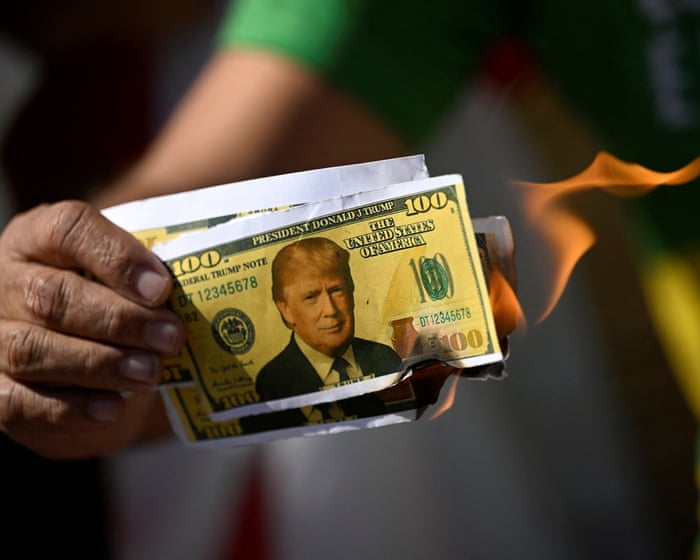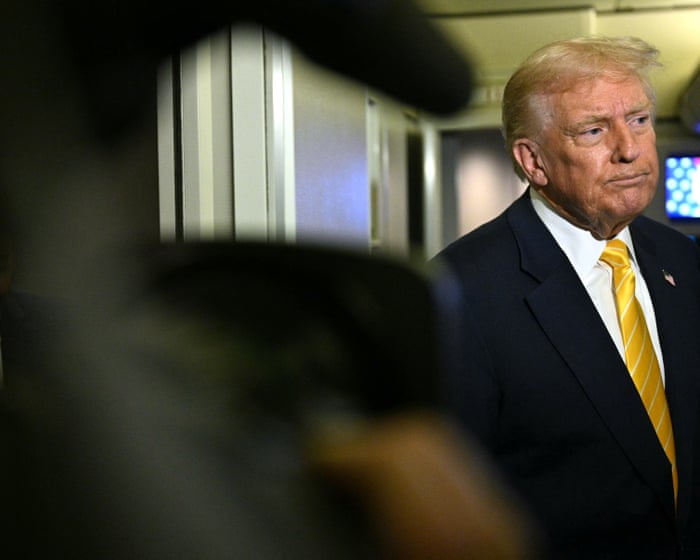More than 60 countries are now scrambling to secure trade deals with the U.S. after Donald Trump introduced sweeping new tariffs, causing global uncertainty.
The move has rattled markets and raised concerns about job losses in some of the world’s poorest nations, with tariffs ranging from 10% to 50%. There was a slight delay in implementation—the White House announced the updated tariffs would take effect on August 7 instead of the original Friday deadline, leaving room for further negotiations.
Trump believes the new rates will benefit U.S. exporters, but they’ve created instability for many countries, including long-standing allies, and stoked fears of inflation in the U.S. India faces a 25% tariff on exports to the U.S., Taiwan 20%, and South Africa 30%. Switzerland was hit with one of the highest rates at 39%. Meanwhile, Mexico was granted a 90-day extension to negotiate a deal.
Stock markets in Europe and the U.S. fell following earlier declines in Asia, as investors worried about the global economic impact. Europe’s Stoxx 600 dropped nearly 2%, while the UK’s FTSE 100 slipped 0.8%. Wall Street also closed lower, with the Dow Jones and S&P 500 down over 1% and the Nasdaq falling more than 2%. The sell-off worsened after weaker-than-expected U.S. jobs data.
Switzerland and Taiwan, a major semiconductor producer, are now rushing to negotiate after being hit with 39% and 20% tariffs, respectively. Canada’s Prime Minister Mark Carney expressed disappointment over Trump’s decision to raise tariffs on Canadian goods from 25% to 35%, citing Canada’s failure to curb fentanyl trafficking and strengthen border security.
South African President Cyril Ramaphosa vowed to push hard in negotiations to reduce the 30% tariff on his country’s exports. Some of the world’s poorest nations were hit with steep rates—Syria faces 41%, Laos and Myanmar 40%, Libya 30%, Iraq 35%, and Sri Lanka 20%.
Potential EU members were also caught off guard, with Moldova facing 25%, Serbia 35%, and Bosnia and Herzegovina 30%.
Lesotho, which Trump once dismissed as a country “nobody has ever heard of,” initially faced a devastating 50% tariff—a major threat to its textile industry—but secured a reduced rate of 15%. The small African nation, heavily reliant on duty-free exports to the U.S., had declared a national disaster when the higher tariff was announced.
The Swiss franc hit a six-week low after the 39% tariff was imposed, while the Canadian dollar extended its losing streak to seven weeks. Swiss President Karin Keller-Sutter, celebrating the country’s national day, said she spoke with Trump but failed to reach an agreement.
Pharmaceuticals make up half of Switzerland’s U.S. exports, likely making them a key target for Trump. Analysts noted that Switzerland was hit hard in the trade war, with its watchmakers, chocolatiers, and drugmakers all at risk.
The UK and the Falkland Islands were the only trading partners given a 10% rate. The EU’s blanket 15% tariff was confirmed, but cars were notably excluded—they remain taxed at 27.5%, with many European automakers resuming U.S. deliveries after last week’s deal.
The new tariffs will take effect on August 8, applying to goods shipped or stored for consumption after that date.The previous tariff rate (10% plus the MFN rate) will remain in effect until October 5, 2025.
Notably, pharmaceuticals were left out of the agreement, even though the White House had announced a 15% tariff rate earlier on Monday—just hours after Trump finalized the deal with the EU at his Scottish golf course.
Pharmaceutical executives, who have faced criticism from Trump for months, were warned by the U.S. president to lower drug prices for American patients. The White House stated that if they refused, the federal government would use “every tool available” to protect American families.
Brazil’s tariff rate was set at 10%, but a previous order had imposed a 40% tariff as punishment for the country’s prosecution of its former president, Jair Bolsonaro.
Meanwhile, Cambodia seemed close to securing a deal after agreeing to eliminate all tariffs on U.S. imports and purchase up to 20 Boeing 737 aircraft.



